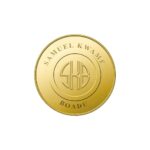Both job seekers and employees must find effective ways to demonstrate their finer qualities and talents and be recognized as quality candidates who can add value to their niche.
Selling is the most important skill entrepreneurs are obliged to master. After all, the success of a product or service depends on your ability to sell it. Yet for selling to be truly successful, today’s entrepreneurs must be engaged as much with selling themselves as their products and services
“Regardless of whatever product or service an entrepreneur has developed, it’s critical that entrepreneurs have a sure sense of self, and be able to sell their vision to prospective customers, partners, and/or investors,” says Samuel Kwame Boadu, Founder of SamBoad Business Group Limited. As much as anything else, what you’re selling them is your competence, your reliability, your commitment, etc. Being able to powerfully communicate that is paramount.”
Related: Creating a Profitable Business Idea, Here are Three(3) Steps
Yet the idea of “selling yourself” is no longer confined to entrepreneurs. Being able to effectively communicate your personal brand and unique value is as paramount in organizational settings as it is in business. In today’s fiercely competitive job market and corporate environment, both job seekers and employees must find effective ways to demonstrate their value, exhibit their finer qualities and talents and be recognized as quality candidates who can add value to their niche.
This is precisely where even the most seasoned professionals struggle. A Google search of the phrase “how to sell myself” reveals some 250,000 results. People are looking for answers on how to best sell themselves. Rather than a purely communicative act of “talking up yourself,” professionals must instead reimagine the notion of selling themselves; rewire their approach to focus on who they really are and the unique value they can offer to potential employers or colleagues. In other words, how can professionals define and communicate their value in more meaningful ways? I offer some ideas for both professionals seeking to enter an industry and those wanting to advance in their field.
Lead with your soft skills
When employers meet you, they first encounter who you are, not what you can do. To effectively communicate your value, start with who you are as a person, not what you know and definitely not your academic credentials and pedigree. Instead, lead with your soft skills. Soft skills are personal attributes, attitudes and character traits that define one’s personality and general disposition. Less specialized and rooted in specific vocations, they are essentially “social skills” that help to decide whether one can interact effectively and harmoniously with other people.
Soft skills have gained great currency in today’s workplace and are now a top priority for businesses. Linkedin’s 2018 Workplace Learning Report found that soft skills such as leadership, communication and teamwork are the most important skills for employees to learn. Meanwhile, 30% of companies checked the box “do not have the right workplace (soft skills)” among the reasons they struggled to hire suitable candidates, according to the 2019 State of the Workplace Report.
In an ever-tightening labor market, employees who demonstrate they have strong soft skills may experience a greater demand for their service. Being adaptable, able to work collaboratively in a team, able to communicate effectively and knowing how to be empathetic and calm under pressure are vital value-adds that a smart employee can bring to the table, transfer across a range of industries and deploy throughout the entirety of their career.
Make sure you can hack it
Although Human Resource managers are now prioritizing soft skills, recruiters also want to reap tangible benefits from hiring candidates. To communicate your value to potential employers, aim to demonstrate that you can actually get the job done. To do this, foreground your specific occupational skills, knowledge and expertise and your prior experience that help to illustrate your hard skills. Hard skills are “technical knowledge or training that you have gained through any life experience, including your career or education.”
Your hard skills are critical because they show your proficiency in areas where prior knowledge and skills are essential. They also communicate to employers that you can execute the roles and responsibilities of a specific job. In today’s job market, good workers and candidates with highly specialized skills are hard to find. Your suite of hard skills must therefore be a strong part of the evidence you bring to the table. To communicate your value, aim to show how your skills increase productivity or efficiency, how your knowledge can be applied to the organization and generally how employers can benefit from their encounter with you.
Related: How to Start a Consulting Business: Your One Page Business Plan
Stand out
It is not enough to demonstrate your hard and soft skills. To communicate your value, it is essential to take stock of the areas in which you are most competitive, what marketers call your “unique value proposition” (UVP). A UVP essentially “describes your value, to whom you provide that value, and what makes you different from your competition”, says Founder of Clickx, Solomon Thimothy. Thimothy was referring to entrepreneurs keen to grow a successful and sustainable business and their obligation to know their unique value to position their product or service as the best possible option in the marketplace. It is also critical for job seekers to define the concrete variables that set them apart from competitors in their field before aiming to sell themselves.
To communicate your point of differentiation, consider the distinctive value you bring to the table. Why should an employer choose you over other candidates for the job? Beyond experience or qualifications, focus on your major wins and significant accomplishments, aspects of your niche that you are exceptional at, when you have gone above and beyond to accomplish a goal and the results that you achieve. This can be deployed as evidence of what prospects can expect when they work with you. You can also communicate your competitive advantage by revealing who you are as a person and what you stand for (your core values). You can exhibit your core values by foregrounding work experience and other activities that express those values.
Know the pain points your competencies solve
Once you land a position, the need to communicate your value does not stop. It is on the job that it becomes even more critical to communicate your value to your employer. Showing your worth immediately puts you in line for promotions and other growth opportunities. A valued employee is also in the best position to survive painful company changes such as downsizing. There are two surefire ways to illustrate your value to your employer. The first is to contribute good work — be productive, demonstrate good leadership skills and effectively get things done. The second is to solve problems.
To communicate your value, help to provide solutions to the most pressing problems confronting your organization or industry. Aim to align your competencies with your organization’s priorities, key projects and goals and show the positive results of your efforts. Come up with fresh ideas, a new way of doing things or offer a new perspective. It shows your employer what you can deliver, offers insights into your vision and ideas as well as helps you remain relevant in your field.
Be visible
A key aspect of communicating your value lies not just in your exceptional performance but in your visibility. Many professionals are unquestionable “performers.” They put their head down and do their work. They see themselves as “quiet leaders” and efficient workers who produce results for their employers. They believe that their work speaks for them. Unfortunately, it does not. Being visible is critical to communicating your value because it establishes your presence within your target market and being seen as a credible expert in your field. There are multiple ways to become more visible in your niche including assuming leadership opportunities, amplifying your voice through speaking engagements and demonstrating thought leadership by sharing your passion, knowledge and expertise through books or blogs as well as leading conversations in your niche on social media. Being an expert is not what you know, it is what you share.
Related: What’s the Real Difference Between Leadership and Management?
Develop a coherent narrative
Once you’ve embraced your value, it is useful to develop a coherent narrative to communicate it to employers and those in your network. When selling yourself to others, use clear and concise statements that describe the value that you bring to the organization. Briefly highlight a strength that you have and show how you have deployed that skill to achieve results. Presenting facts about your skills allows employers to understand how you can add value to their organization or mission. The key is to communicate your value not only in terms of your own interests but meet the needs of others and illustrate how they can benefit from the unique value you bring to the table.
.
SKB Journal appreciate you a lot for reading! If you enjoyed this piece by Samuel Kwame Boadu, kindly hit the share button and help others to also see it. You can also like our Facebook page, so you know when we make new posts or Click to JOIN our Telegram Channel where we post JOBS + TIPS





1 comment
[…] Read Also: Don’t Just Sell Yourself, Communicate Your Value: 6 Valuable Tips […]